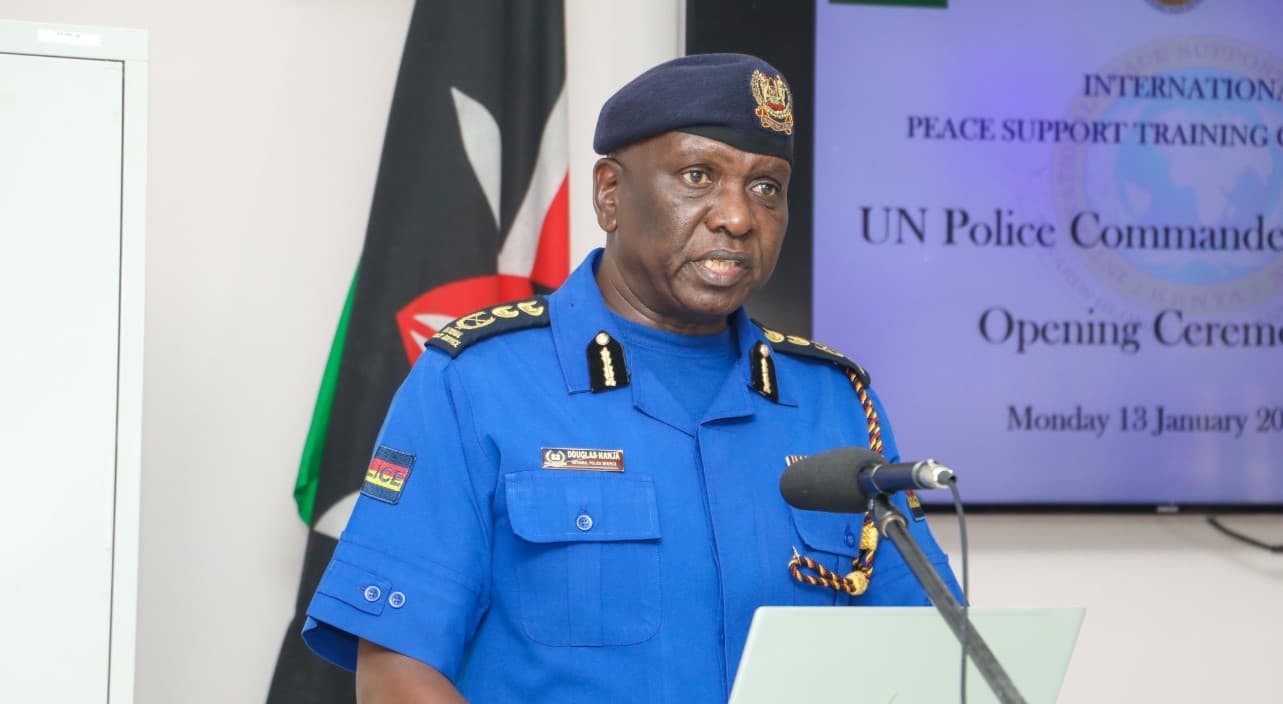We're loading the full news article for you. This includes the article content, images, author information, and related articles.
A damning anti-corruption report and ongoing legal battles over recruitment intensify pressure on Inspector General Douglas Kanja’s leadership amid public outcry over police brutality and a surge in enforced disappearances.

The National Police Service (NPS) is grappling with a severe crisis of confidence following the release of a damning report by the Ethics and Anti-Corruption Commission (EACC) on Thursday, November 13, 2025. The report, presented at the National Police Leadership Academy in Ngong, uncovered deep-rooted systemic weaknesses, governance gaps, and widespread corruption vulnerabilities within the service. Conducted between February and June 2025 with support from the United Nations Office on Drugs and Crime (UNODC), the audit identified manipulated recruitment processes, irregular transfers, and systemic extortion, particularly within traffic units, as critical areas of concern. The EACC report described bribery in the traffic department as highly organized, with junior officers allegedly given daily collection targets to be channeled up the chain of command. Upon receiving the report, Inspector General of Police Douglas Kanja stated that the NPS would form committees to act on the findings and ensure any officer found culpable would face the law. EACC Chairperson David Oginde gave the IG a 30-day deadline to develop an implementation matrix to track the recommended reforms.
The EACC's findings on corrupt recruitment practices come as the NPS struggles with a chaotic and legally contested hiring process. A planned recruitment of 10,000 police constables has been marred by a protracted power struggle between the Inspector General's office and the National Police Service Commission (NPSC) over who holds the constitutional mandate to hire officers. The process has been halted by the courts multiple times. On October 2, 2025, the Employment and Labour Relations Court issued a temporary order stopping the exercise. Later, on October 30, 2025, the same court barred the NPSC from conducting recruitment, affirming the IG's authority over the process. However, a subsequent challenge led to another suspension on November 10, 2025, before the High Court finally lifted the order on Friday, November 14, 2025, paving the way for the recruitment to proceed on Monday, November 17. In an urgent court application, IG Kanja had warned that a three-year freeze on recruitment had left the service severely understaffed, posing a significant risk to national security, especially with the 2027 General Election approaching.
The internal challenges of the NPS are compounded by intense public scrutiny over its handling of recent youth-led protests and an alarming increase in abductions and enforced disappearances. Human rights organizations have documented extensive police brutality. A report by Amnesty International released in November 2025 accused Kenyan authorities of using technology to repress citizens during the 2024 and 2025 Gen Z protests, resulting in at least 128 deaths, 3,000 arrests, and over 83 enforced disappearances across both years. The protests, initially sparked by opposition to a controversial finance bill, evolved to address broader issues of corruption and police violence. Concurrently, Kenya has witnessed a surge in abductions, with many victims being government critics active online. According to a State of National Security report, kidnappings and abductions increased by 44 percent between September 2023 and August 2024. The Kenya National Commission on Human Rights (KNCHR) reported in late 2024 that it had recorded 82 cases of enforced disappearances since June of that year, with many still missing. Many of these abductions are carried out in broad daylight by armed individuals in unmarked vehicles, with security agencies widely believed to be involved. Despite the mounting evidence and public outcry, which has included calls for the IG's resignation, a comprehensive official response from the police leadership on the latest wave of allegations remains pending. The situation is exacerbated by a legal vacuum, as Kenya has not ratified the International Convention for the Protection of All Persons from Enforced Disappearances, and the crime is not specifically defined or penalized under national law.
Keep the conversation in one place—threads here stay linked to the story and in the forums.
Sign in to start a discussion
Start a conversation about this story and keep it linked here.
Other hot threads
E-sports and Gaming Community in Kenya
Active 9 months ago
The Role of Technology in Modern Agriculture (AgriTech)
Active 9 months ago
Popular Recreational Activities Across Counties
Active 9 months ago
Investing in Youth Sports Development Programs
Active 9 months ago